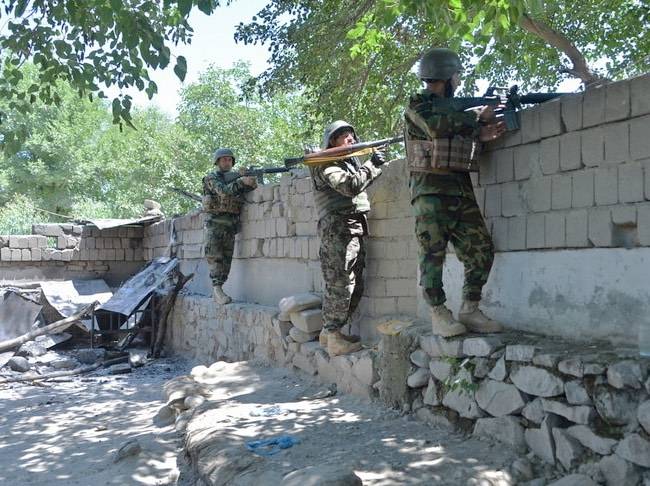Afghan Taliban intensify attacks in Afghanistan as the US troops withdraw
Shares

KABUL (Agencies): Thousands of families are fleeing their homes amid intensified Taliban offensives in several provinces, as the United States and NATO began withdrawing their remaining forces from Afghanistan on May 1. “Most of those displaced are from the provinces of Helmand, Kandahar, Baghlan and Laghman,” said Sayed Abdul Basit Ansari, a spokesman for Afghanistan’s Ministry of Refugees and Repatriation. “They fled their houses due to the escalation in violence.”
Ansari said that in Laghman province, which has witnessed heavy fighting between the Taliban and the Afghan government forces in recent weeks, 6,000 families have fled their homes. The Taliban captured a district in Laghman and launched an assault on Mehtar Lam City, the provincial capital, last week.
Gul Meena, a resident of the Alingar district of Laghman province, has taken refuge in a makeshift camp in a park in Mehtar Lam City. She said she left her house because of the fighting in her district. “I am here with my grandchildren and daughters,” she said. “My son stayed behind. I am trying to call him, but his phone is not working.”
According to the UN Office for the Coordination of Humanitarian Affairs (OCHA), as of May 21, about 100,000 people had been displaced by conflict in Afghanistan this year. OCHA reported that 404,100 people in Afghanistan were displaced in 2020 because of violence, which brought the total of internally displaced people (IDP) in the country to 3.55 million by the end of 2020.
Imranullah, 20, who fled his house with nothing, said his family and the other displaced people were in desperate need of help. Imranullah, like many Afghans, goes by one name. “We do not have food, no shelter. We have nothing,” he said. He added that officials have visited their makeshift camp in Mehtar Lam City but did not provide them with assistance. “They come here, make empty promises and then leave,” he said. The Afghanistan Ministry of Refugees and Repatriation said it had assisted about 1,000 out of 6,000 displaced families in the province.
But Lal Gul, chairman of the Afghanistan Human Rights Organization, said “the humanitarian response to the new IDPs was not adequate.” He called on international humanitarian organizations to step in. “These families are in dire need for humanitarian assistance. No one has helped them,” Gul said. “The Afghan government does not have the capacity to address the needs of the large number of IDPs,
and international humanitarian organizations have not helped them.” He expressed concern about the escalation of violence that could force more people from their homes. “It is clear that If they [parties in the conflict] do not agree to a cease-fire, we will have more IDPs,” Gul said. The fighting started last week after the Taliban overran Dawlat Shah, the northern district in the province. After capturing several outposts in Alishing and Alingar districts, the Taliban launched an assault on Mehtar Lam City.
Provincial officials in Laghman said that security forces had pushed the Taliban back from the city. But local people said government forces were still fighting the Taliban on the outskirts of Mehtar Lam City. “The fighting has not ceased,” said Bilal Sarwari, an Afghan freelance journalist, adding that “sporadic fighting has continued on the outskirts and some parts of the city.” Sarwari said the Taliban advances on Mehtar Lam City were stopped only when reinforcements were sent from Kabul and air attacks were carried out against the Taliban positions around the city. Located east of Kabul, Laghman is strategically important because the Kabul-Jalalabad Highway that connects Kabul to eastern provinces passes through the province.
Afghan officials said that the Afghan security forces were fighting against the Taliban in 104 districts across the country. The Taliban have captured at least four districts in the past two weeks as the US and NATO have started withdrawing their remaining forces from Afghanistan. The US plans to pull out all its forces from Afghanistan by September 11, 2021
